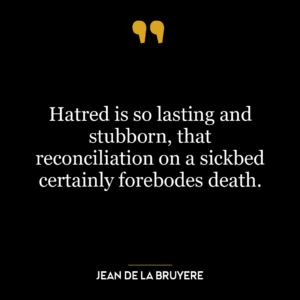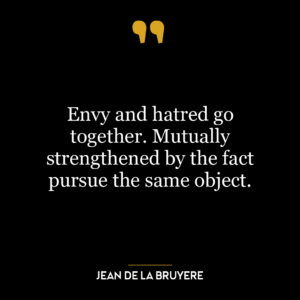Friedrich Nietzsche’s quote, “Where neither love nor hatred is in the game, a woman’s game is mediocre,” suggests that strong emotions like love and hatred are essential to achieving excellence. In Nietzsche’s view, it’s these intense feelings that drive us to surpass mediocrity and achieve greatness. Nietzsche uses the term ‘woman’s game’ as a metaphor for any human endeavor, not just those undertaken by women.
The quote implies that without passion, without a deep emotional investment, our efforts lack the necessary intensity to be truly outstanding. Both love and hatred are powerful motivators that can push us beyond our comfort zones, forcing us to strive for more. Love drives us because it makes us want to excel for the sake of what or whom we love. Hatred, on the other hand, can serve as a motivator because it pushes us to prove someone wrong, to overcome an obstacle, or to surpass a rival.
Applying this concept to today’s world or personal development, we can say that passion is key to achieving our goals. Whether it’s in our career, personal projects, or relationships, if we don’t feel strongly about what we’re doing, we’re unlikely to give it our best. This doesn’t mean we should cultivate hatred; rather, it’s about harnessing the energy of our emotions, positive or negative, to fuel our efforts.
For instance, someone might be motivated to work hard and succeed in their career because they love their job and want to excel in it. Alternatively, they might be driven by a desire to prove a doubting parent or teacher wrong, which can be seen as a form of hatred. In both cases, it’s the intensity of the emotion that pushes them to go beyond mediocrity.
In terms of personal development, this quote suggests the importance of self-awareness and emotional intelligence. Recognizing and understanding our emotions can help us channel them into productive energy. Furthermore, it encourages us to seek out and pursue what we’re passionate about, as this is where we’re likely to put in the effort required to excel.









